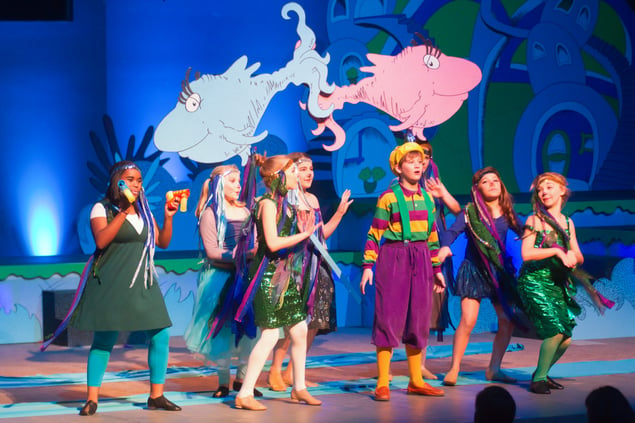Pulaski Academy offers classes in the performing arts to fifth through twelfth grade students taught by Mrs. Sheridan Posey. The study of theatre benefits students well beyond the visible exploration of character on stage. The theatre classroom houses what we like to call “creative chaos.” Students spend most of their time in performing arts learning and brainstorming on their feet. Classes are fast-paced and packed with history, design, improvisation, writing, and of course, acting!
Students who study theatre at PA receive a wide range of instruction and opportunities to showcase their abilities. Here are a few highlights:
- Learn important life skills such as confidence, public speaking, problem solving, teamwork, time management, improvisation, and respect for various art forms.
- Strengthen imagination and creativity, which sets students up for success in other classes as well.
- The opportunity to audition for four shows a year: the fall play, Frosty Follies, spring musical, and the middle school musical.
- Backstage crew and production management positions for theatrical productions are available to students as well.
- Upper school theatre classes present public showcases of material they have developed throughout the year.
- Upper school students learn the First Folio Technique when studying Shakespeare for performance. This technique involves mining the original text for acting clues found in spelling, capitalization and punctuation.
- Learn playwriting, sketch comedy writing, and improvisation techniques.
- Design stage makeup and learn how to apply it correctly on the face.
- Receive movement based instruction, learning the value of warming up the body and voice before performing. Students are encouraged to create a personal warm-up that not only prepares them for performance, but will also focus their mind and breath and stretch their muscles before class every day.
- Movement and vocal methodologies taught include Rudolf Laban, Kristin Linklater, Anne Bogart (Viewpoints), Commedia dell‘Arte, and the Alexander Technique.
- Acting methodologies taught include Stanislavski’s System, Meisner Technique, Viola Spolin, Stella Adler and Uta Hagen.
Students in theatre classes learn how to be supportive and encouraging to their peers, to offer and receive constructive criticism, and to think quickly on their feet in any given situation. Theatre instruction can truly benefit anyone and we are excited to see the program growing.
Did you know...
- Students involved in drama performance coursework or experience outscored non-arts students on the 2005 SAT by an average of 65 points in the verbal component and 34 points in the math component(1)?
- Drama activities improve reading comprehension, and both verbal and non-verbal communication skills?
- Drama helps to improve school attendance and reduce high school dropout rates(2)?
- A 2005 Harris Poll revealed that 93% of the public believes that arts, including theatre, are vital to a well-rounded education (3)?
- Drama can improve skills and academic performance in children and youth with learning disabilities?
Click the link below to learn more about






